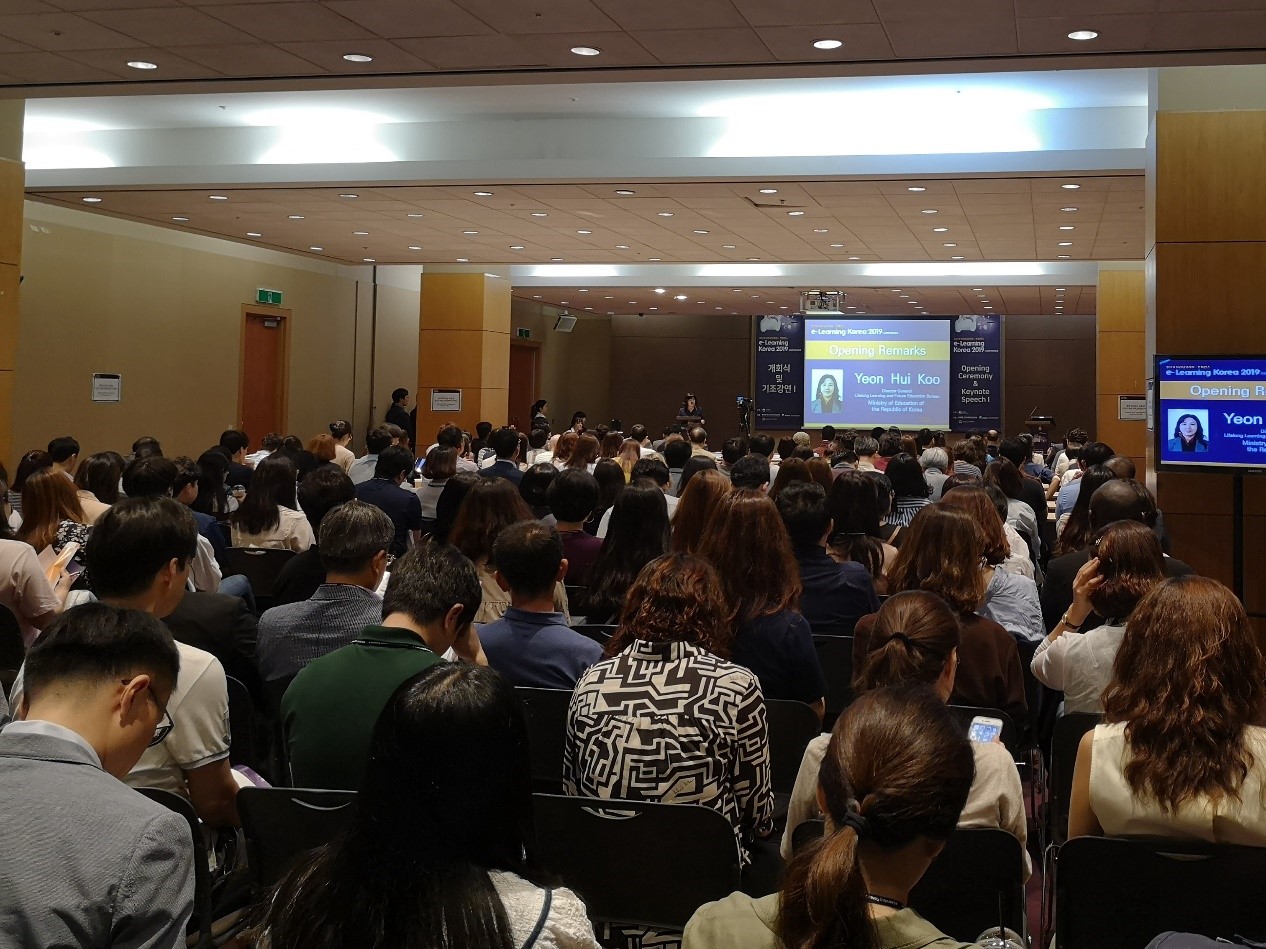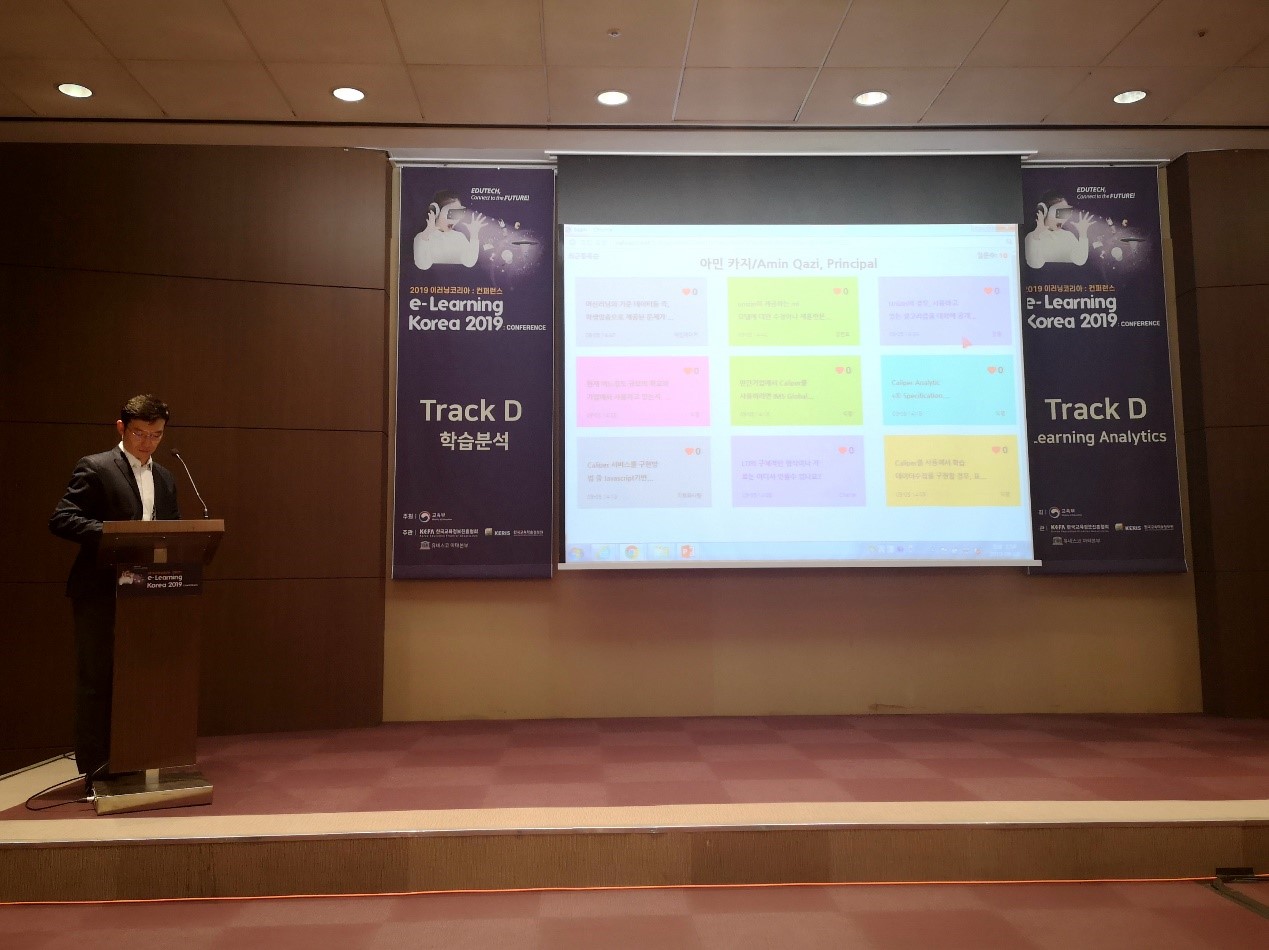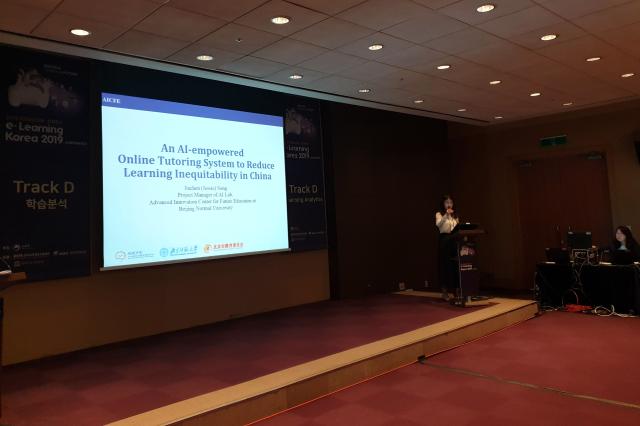
With the development of technology in recent years, we have witnessed tremendous changes in the field of education. Online courses have transcended geographical boundaries, and mobile learning applications have expanded traditional classrooms. Besides, Open Educational Resources (OER) has provided affordable educational resources and many innovations have made education gradually inclusive for everyone. In the future, artificial intelligence and virtual reality could improve the quality of education and promote personalized learning. Giving full play to the potential of ICT in education will bring far-reaching changes to education and contribute to a more innovative and open educational paradigm.
Under this background, the Korean Ministry of Education, Korea Education Frontier Association, Korea Education and Research Information Service, and UNESCO Asia-Pacific Regional Bureau for Education organized the E-learning Korea 2019: Conference in Seoul. The theme of the conference was EduTech: Connect to the Future. It attracted more than 1000 representatives from Australia, Bhutan, France, Laos, Maldives, the United States, Bangladesh, Japan, Solomon Islands, Thailand, Singapore, India, Vietnam, China and other countries.

Figure 1: Speech by Yeon Hui Koo, Director of Lifelong Learning and Future Education Bureau, Ministry of Education, Korea
The conference was divided into 4 tracks. The project manager of the AI Lab, Jiachen Song, introduced the Expert-based Collective Advising Mechanism (an open online tutoring project) and AI Tutor in Track 4- Learning Analysis and Changing Future Education. Afterwards, the guests asked questions about how to encourage local teachers to participate in the ECAM, how to ensure the quality of online tutoring, and the role of artificial intelligence in it. After the meeting, the staff of the Department of Education Innovation and Skills Development of the UNESCO Bangkok Office expressed their appreciation for the work of the Center and hoped to have the opportunity to invite the Center to share in the events they hosted. The invitation marked the center’s exploration in the field of AI in Education, especially that ECAM and AI Tutor have received extensive international attention. With the promotion of these projects, the Center hopes to further explore the potential of advanced technologies such as artificial intelligence to promote education equity, achieve personalized learning, and empower teachers.

Figure 2: Jaw-uk Eu, Lead Researcher, Future Education Policy Division, Korea Education & Research Information Service, presided over the track 4

Figure 3: Jiachen Song, Project Manager of AI Lab, introduced the work of the Center